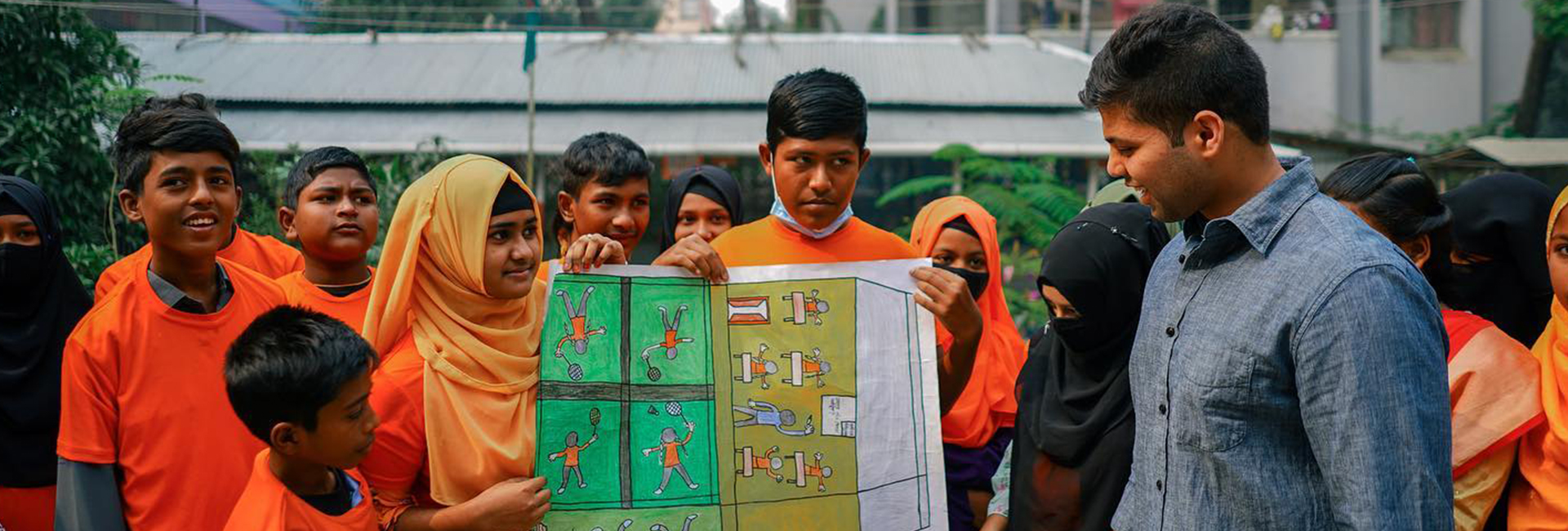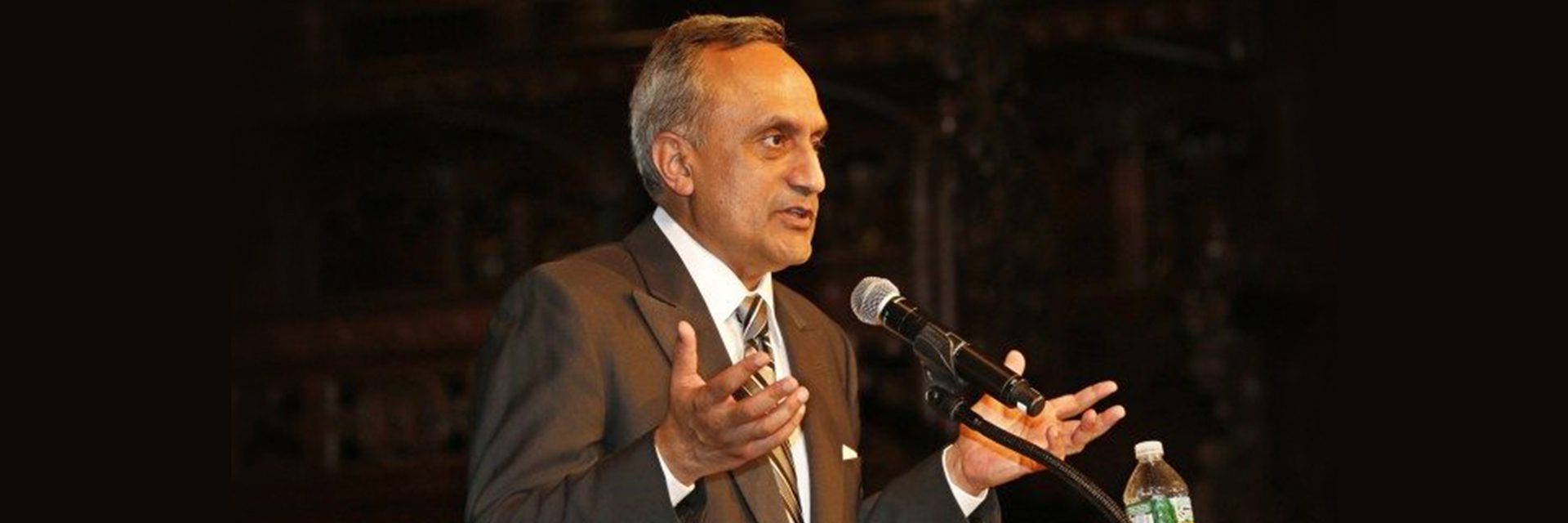(November 18, 2024) The sweltering heat of rural India greeted Priyanka Senthil during her family’s annual visits from the United States, but it was the stark disparity in living conditions that truly struck her. In these villages, clean water was a rare luxury, and the lack of basic necessities, such as menstrual products and sanitation, shaped every aspect of daily life. Returning to the US, where such resources were abundant and often taken for granted, Priyanka couldn’t shake the memory of how those hardships limited people’s potential. In order to bridge the gap between privilege and need, she started Life Basics, a nonprofit dedicated to empowering underserved communities through sustainable initiatives. “Our mission is to create lasting change through four thoughtfully designed initiatives that are aimed at promoting health, dignity, and self-sufficiency,” she tells Global Indian.

Through Life Basics, Priyanka, who currently works at Massachusetts General Hospital in Boston, is making a compelling case to empower underserved communities with essential resources and opportunities to help promote self-sustainability.
Down Memory Lane
Born in India, she moved to the United States along with her family when she was three years old. Though she grew up in California, Priyanka Senthil moved to Nevada for high school before enrolling at Rice University for her college. While she grew up in America, her Indian roots remain a strong part of her identity, reinforced by family traditions and visits to India. This dual connection gives her a deep understanding of both privilege and struggle. For Priyanka, the contrast between her life in the US and the challenges faced by rural communities in India inspired her to take action. Like many in the diaspora, giving back to her roots is not just a responsibility but a meaningful way to honour her heritage.
“I started Life Basics in my second year at Rice University. Before that, I was, and continue to be, very interested in the field of medicine. During high school, I worked in several neuroscience research labs, and then in college, I became heavily involved in lung cancer research and continue to be involved,” she adds.

Health Focus
Since 2021, Priyanka Senthil has served as the Executive Director of the American Lung Cancer Screening Initiative, a national student-led nonprofit dedicated to increasing awareness of and access to lung cancer screening among high-risk individuals. “Through my work with the American Lung Cancer Screening Initiative, I have seen first-hand how barriers like transportation, childcare, insurance, education gaps, and misinformation can prevent people from receiving the care they need. These challenges inspire me to work toward a healthcare system that addresses these barriers, promoting equity in all areas of medicine,” says Priyanka.
For someone with a passion for healthcare, especially in terms of making it equitable and accessible, she hopes to pursue a career as a physician in the oncology space. “I am very interested in cancer research and treatments. I am passionate about increasing access to healthcare among underserved and historically marginalized communities.”

Priyanka with members of the American Lung Cancer Screening Initiative
Making a Difference
Drawing inspiration from conversations she had with her peers, community leaders, and individuals in underserved communities in India and the US, she created Life Basics with an aim to empower underserved communities with essential resources and opportunities to help promote self-sustainability. At Life Basics, the mission is to create lasting change through four thoughtfully designed initiatives – Periods of Power, Cozy Covers, Sewn for Success, and H2O for Humanity.
Impactful Initiatives
The Periods of Power initiative is focused on donating menstrual products and destigmatising menstruation through education. “We have donated over 56,600 period products to orphanages, rehabilitation centres, and underserved schools in India, as well as to foster care homes and homeless shelters in Houston such as Star of Hope, Beacon Homeless, and Sanctuary Foster Care Services. We have been able to directly impact over 2,500 people with our Periods of Power initiative,” she says.

Priyanka Senthil during one of her initiatives in India
Sewn for Success initiative, on the other hand, is focused on providing sewing machines to rehabilitation centres that have vocational training programs in India so that the beneficiaries they serve can learn how to sew and make a sustainable livelihood for themselves. In India, tailoring is a common occupation, so her team hopes that by providing sewing machines, they can help members of the community supplement their incomes and take care of their families.
“Our H2O for Humanity initiative is focused on constructing water pumps in rural communities to increase their access to clean water. We will be collaborating with nonprofit organisations that are already building water wells in certain areas so that we can leverage the partnerships they have to truly address the community’s needs,” adds Senthil. The Cozy Covers initiative is focused on working with hotels to collect and distribute bath and bedding materials to homeless shelters. Many lodging establishments prematurely discard their sheets and this leads to a lot of waste in landfills. They hope to mitigate this trend and find a more sustainable solution so that these urgently needed items can be donated to those who can use them.
Helping Hand
Each initiative addresses specific challenges while promoting sustainable solutions. “Our goal is to empower these communities to become self-reliant. For us, Life Basics is not just a nonprofit but a deeply personal commitment to bridge the gap between privilege and need. We hope to create not just immediate impact, but lasting change,” avers Senthil. Life Basics tailors each initiative to meet the unique needs of the communities they serve. For example, period poverty and homelessness are issues both in India and the U.S. that the team is seeking to address.

Hopeful Future
Currently, while their primary focus is India and Houston, they are actively working to expand within the U.S. and in other countries, such as Ethiopia. “We are also working to start Life Basics chapters at high schools and colleges across the country, with students who can assist on the ground. Building relationships with community partners and sponsors is crucial to sustaining our programs, and we are deeply grateful for the support received so far. We aim to secure additional sponsorships to scale our impact,” she says.
For someone who enjoys spending time with friends and family, going on day trips, and exploring Boston when free she has sound words of advice for youngsters who aspire to be entrepreneurs. “Seek out mentors who can offer guidance and constructive feedback. Network and connect with people in your field. Don’t shy away from new or challenging experiences—push yourself beyond your comfort zone because that is where learning and innovation happen,” she adds.

Priyanka Senthil’s journey shows how empathy and determination can drive meaningful change. Through Life Basics, she has transformed her experiences and dual identity into impactful initiatives, tackling issues like access to water, menstrual health, and sustainable livelihoods. By working to bridge the gap between privilege and need, she empowers underserved communities while inspiring others to take action. With her dedication to healthcare equity and her vision for lasting change, Priyanka is creating a path where compassion and practical solutions work hand in hand to improve lives.
Read a similar story of Vinay Hiremath, Loom’s co-founder quest for purpose.



